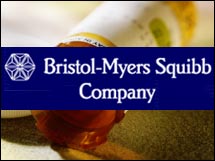|
Bristol not ready to put out 'for sale' sign, yet Bristol may be too big and problematic to entice buyers NEW YORK (CNNMoney.com) -- Just because Bristol-Myers Squibb forced out its CEO doesn't mean it's planting the "for sale" sign in the front yard, despite all the talk about the drug company being a take-over target. For one thing, the New York-based Bristol (up $0.29 to $24.61, Charts) is the fifth-largest drug maker in America and has a market capitalization of nearly $50 billion. So Bristol is too large for most companies to even consider a purchase. The mere thought of acquiring a company this big is intimidating even to a giant like Pfizer (down $0.06 to $28.19, Charts), the biggest drug maker in the world.
"Though there has been considerable speculation that [Bristol] is a takeover target, most potential acquirers have suggested it was not in their interest to do a deal this large given the unsuccessful history of large big pharma transactions," wrote Les Funtleyder, analyst for Miller Tabak, in a published note. Two of the largest companies in the drug business, Pfizer and Sanofi-Aventis (down $0.25 to $43.76, Charts), have gone through massive mergers in recent years and are not in a hurry to do another, said Jon LeCroy, analyst for Natexis Bleichroeder. LeCroy said Pfizer's $59 billion acquisition of Pharmacia in 2002 has not been profitable enough to justify the purchase, considering the health problems associated with the anti-arthritis drug Celebrex. And Sanofi-Synthelabo's $66 billion purchase of Aventis in 2004 is too recent for the French drug giant to make another anytime soon. LeCroy said Merck (Charts) is not looking for massive expansion, while Eli Lilly & Co. (up $0.23 to $55.38, Charts) and Schering-Plough are too small to consider buying the company. Wyeth (down $0.03 to $49.89, Charts), with a market cap of $67 billion, might be able to buy Bristol, but size isn't Bristol's biggest obstacle to being purchased by another company. The problem with Plavix Bristol's top product Plavix has hit a legal quagmire in its battle with generic drugmaker Apotex. The uncertain fate awaiting Bristol's flagship drug would be enough to scare away many potential buyers, at least until the issue is resolved. "Companies want marquee products, and in Bristol's case, the only marquee product is Plavix," said LeCroy of Natexis Bleichroeder. "The marquee product is still in jeopardy. Until the court case is resolved in 2007, no one is going to entertain buying [Bristol.]" The problems over Plavix, a drug that Bristol shares with partner Sanofi, are serious. In fact, the Plavix debacle is the final straw that resulted in the Sept. 12 ouster of former CEO Peter Dolan, who led the company since 2001. He has been replaced, temporarily, by interim CEO James Cornelius. The patent on Plavix, which totaled $3.8 billion in 2005 sales, doesn't run out until 2012. But Apotex, a privately-held Canadian drugmaker, flooded the market with a generic version of the drug after the company received FDA approval, even though it did not have legal clearance to do so. The Bristol-Sanofi partnership offered Apotex a $40 million settlement to halt generic production for five years, but this backfired when federal authorities started investigating Bristol for allegedly acting improperly with the settlement. Under Dolan's leadership, Bristol managed to block the production of generic Plavix, when a federal judge on Aug. 31 granted a preliminary injunction. This injunction must be honored until the companies square off in court on Jan. 22, 2007. Despite the judge's ruling, Dolan got the boot when a federal monitor told Bristol's board on Sept. 11 that their CEO had to go. Also, Bristol had to lower its 2006 earnings projection to 95 cents a share, from a range of $1.15 to $1.25. Any potential buyers of Bristol would most likely wait until the Plavix case is settled before making an offer. Bristol does have a couple of gems, including Orencia, a treatment for rheumatoid arthritis, and Sprycel, a treatment for two types of leukemia. David Moskowitz, analyst for Friedman, Billings, Ramsey, estimates that Sprycel sales will total $1.4 billion by 2010, and Orencia sales will reach $1 billion that year. While some analysts believe that Bristol is undervalued because of its robust pipeline, LeCroy believes that the pipeline is over-hyped, because the company won't be getting significant new products on the market until 2009. "When you look under the hood, it's just not that impressive, even though they get touted as having this great pipeline," said LeCroy. |
|

